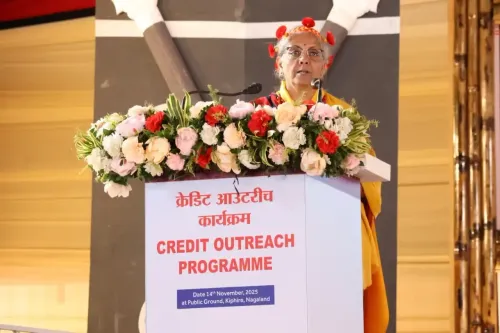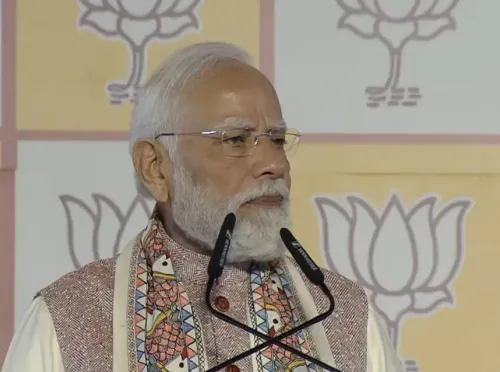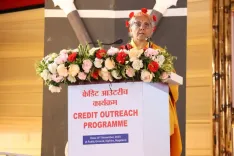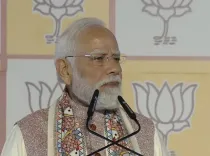Is the Bihar Verdict a Reflection of Congress' Ideological Shift and Politics of Appeasement?

Synopsis
Key Takeaways
- NDA leads with 202 seats in Bihar elections.
- Congress trails significantly with only 34 seats.
- Voter dissatisfaction linked to Congress' ideological shift.
- Concerns over appeasement politics affecting electoral outcomes.
- Identity politics playing a crucial role in voter perception.
New Delhi, Nov 14 (NationPress) The National Democratic Alliance (NDA) is on track for a significant triumph in Bihar this Friday, leading in 202 seats as per the latest updates, while the Mahagathbandhan—comprising the Indian National Congress (INC), RJD, and other smaller allies—trails with a mere 34 seats.
BJP strategists and political analysts view this vast margin as indicative of voter discontent towards the INC’s perceived ideological transformation and its alleged focus on appeasement politics.
On the birth anniversary of Pt. Jawaharlal Nehru, observers noted a sense of disenchantment among long-standing Congress members, suggesting a shift away from the party’s traditional ideology towards a blend of Maoist influences and Muslim appeasement—often referred to in political discussions as the “Muslim League Maowadi Congress.”
This narrative resonates with ongoing discussions about the Congress' recent performance. Prime Minister Narendra Modi has previously criticized the Congress for its institutional choices, including the controversial transfer of properties to the Waqf Board prior to their exit from power in 2014, highlighting this as an instance of appeasement that undermines secular values.
Defence Minister Rajnath Singh has also pointed to remarks by Telangana Chief Minister Revanth Reddy, who controversially aligned the Congress with the Muslim community during the Jubilee Hills bypoll, asserting that such statements could create divisions along religious lines.
Political analysts identify several critical moments in Karnataka, Telangana, and other regions, arguing that welfare commitments directed at particular communities, challenges to laws governing religious institutions, and demographic politics have collectively shaped voter perceptions, reinforcing identity-focused strategies.
Additional contentious topics, such as the handling of triple talaq, the Citizenship Amendment Act, and various communal incidents, have been cited in public discussions as examples of selective governmental intervention. Analysts contend that these trends may have driven a movement away from broad-based politics towards more targeted, identity-centric platforms, influencing the electoral results in Bihar.









